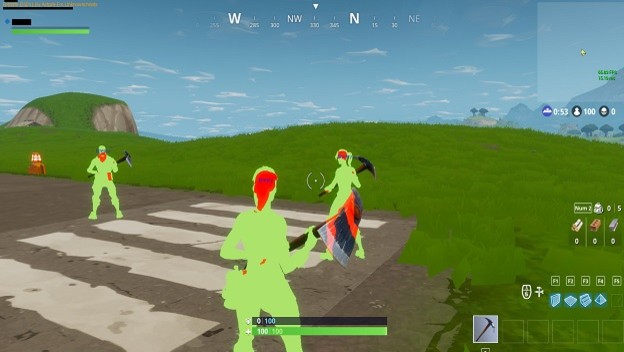On a global scale, developers of multiplayer games are suing their players for cheating, hacking, or developing tools that assist players in their cheating pursuits. The presence of cheaters is nothing new; Counter Strike was rife with aim bots, for example. What is new, however, is this trend of suing players to make an example out of them.
Last week, in China, 15 PlayerUnknown’s Battlegrounds hackers who were selling game cheats were arrested and fined, collectively, for 4.5 million USD. Blizzard sued a German hack developer in July of last year for 50 thousand USD.
It isn’t as though the developer behavior doesn’t make sense. It is important for them to protect their brand and, because they make their money off the continued support of their online titles, it is crucial that they maintain an enjoyable experience for their player base. It is often not fun to play at a considerable disadvantage because some people, for whatever reason, have elected to cheat.
For the most part, the lawsuits see mixed results. It makes sense to try to go after the source of the cheats. If there are companies or individuals out there who are creating and distributing cheating programs for a profit, then they need to be held accountable for their behavior. They are contributing in a very significant way to the prevalence of cheating in certain online titles for profit. It is also likely that people who create hacks know precisely what they are doing and are aware of the potential legal repercussions. When legal action is taken against them, game developers send a clear message that they are addressing the problem and, potentially, making an impact.
What bothers me is when individual players are subjected to lawsuits. The philosophy behind these lawsuits is, I’m guessing, to make an example out of some select players to try to deter cheating in general. Clearly, it isn’t working, and an unfortunate few are being punished in a way where they seem to shoulder the burden of the negative behavior of a much larger group of people. What is particularly odd is when that person is only 14 years old.
This was the case late last year when Epic sued a teenager, released his name, and drew the scorn of his mother who argued that there wasn’t sufficient evidence, Epic’s ToS for Fortnite required consent for a minor to play which the mother did not give, that the company could not demonstrate a financial loss, and that her son was being used as a scapegoat. Epic, obviously, disagreed with these claims and, just this week, tried to get a default judgment against the kid. The move is ambitious and could potentially be a PR disaster.

It used to be that “ban hammers” were the traditional response. If cheating was detected, a player would be banned. Perhaps the onus should be on the companies to develop better software to detect hacking. Perhaps investigations into hacking should somehow be made more efficient. But suing individual players? I don’t know. It just seems like a cold and dramatic step, even if it is within their legal rights. I know ignorance to the law is no defense, but most people do not read the Terms of Service and, in the naivete of youth, are unlikely to properly weigh the risks of their behavior.
There needs to be some sort of restraint here. Companies that produce hacks and cheats are, as I said, a sensible target and I would be hard-pressed to take issue with their demise. But the players are just trying to have fun, even if they’re being dicks about it, and while the game is meant to be enjoyed by all and the cheating can diminish that fun, there has to be a better way. A sizable lawsuit can follow a family around for a long time. The kid’s name being released is akin to shaming. And, even if it was deemed absolutely necessary to pursue players, it is odd that of all the options available, they would opt to punish a kid like this.
